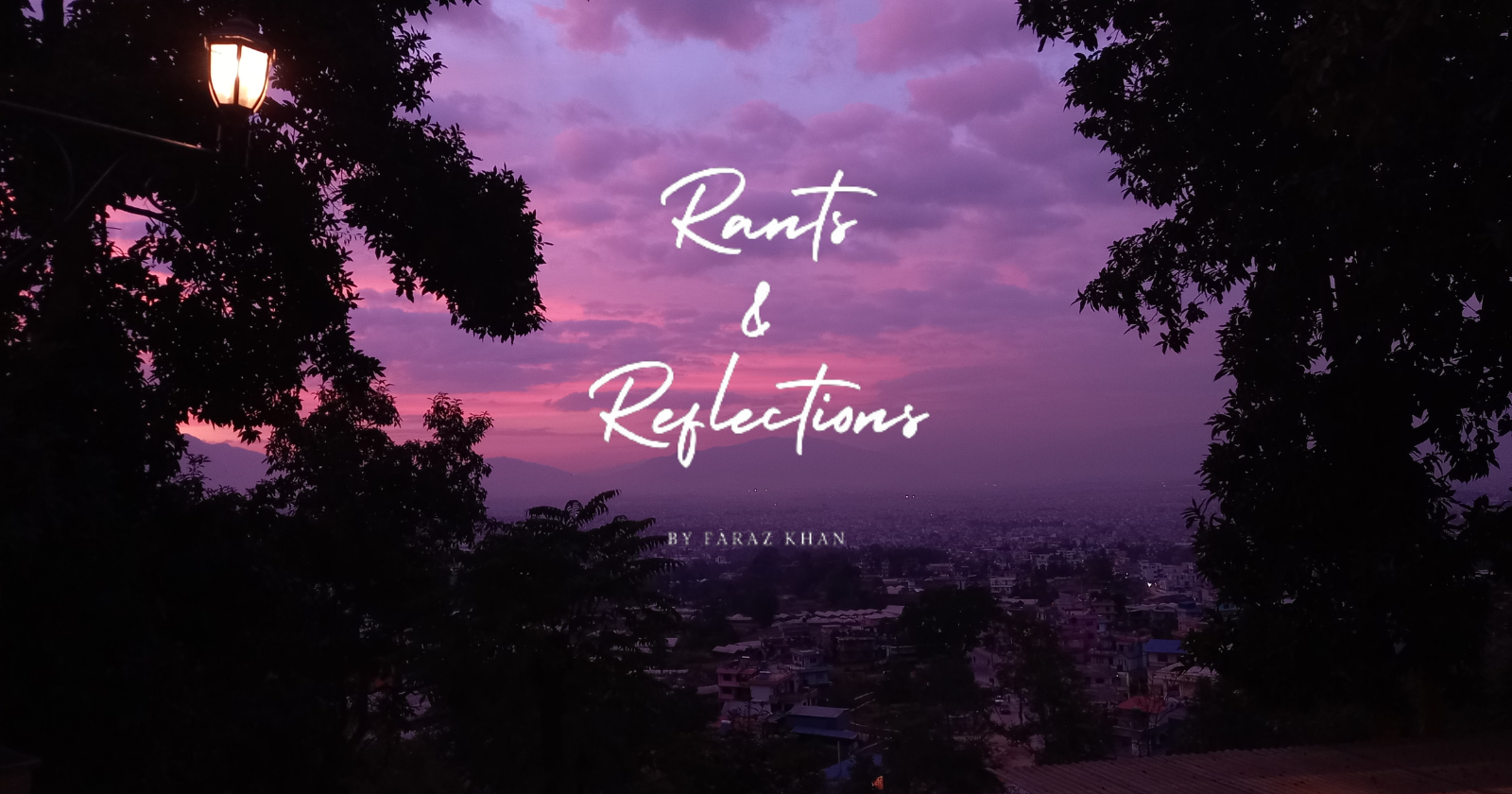The Storytelling Species
 Faraz Khan
Faraz Khan
The Prelude
Today, I would like to share with you something that has been going through my mind recently. Have you ever realized that much of what we call life is made up of things that are not even real? We, as human beings, are part of a larger biological reality, but that was not enough for us. To make more sense of the biological reality, we have been adding, on top of it, layers of 'Cognitive Constructs,' which are nothing but creations of the human imagination. For simplicity’s sake, let's refer to these 'Cognitive Constructs' as 'Stories' for the rest of this blog post. These Stories are not to be confused with stories that we tell each other primarily for entertainment, and the capitalization of the word here is intentional. Look around you, and you’ll notice that the things that we value or hate, the things that we live or die for, are all nothing but Stories that we, a large number of humans, decided to believe in completely and collectively. And these Stories are everywhere and much more powerful than we realize. Don’t believe me?
Take, for example, money: The actual value of the currency note is next to nothing; nobody in their right mind would take a dirty piece of paper that carries the worst of germs and give you back some tangible product or service. But money carries its value because we made a Story out of it; we collectively decided to assign it a value that it did not previously have. And now look at how our entire lives get directed by this imaginary concept. Money only has value because it is a shared belief system and is an example of one of the most successful mental constructs we created. It is the only thing that makes billions of people, who do not even know each other, collaborate and depend on each other to keep the economic engine running.
Another example of a Story is the concept of social hierarchies and the power that comes in direct proportion to them. The value and status associated with certain positions or roles are not inherent in nature but exist because they are collectively agreed upon. My man Varys from GoT was onto something when he said, "Power resides where men believe it resides. It's a trick. A shadow on the wall. And a very small man can cast a very large shadow".
Consider all the things that exist outside our biological framework, taking the form of intangible concepts. You'll realize that many things we hold dear, such as social norms, culture, national borders, and even our careers, are essentially just Stories.
Now, hold on a second. When I say all these things are just Stories, it doesn't mean I'm devaluing them as fiction or considering them insignificant. Nononono. In fact, I marvel at our ability to create these Stories, and I embrace and cherish them—perhaps even a little more than the real biological reality. Why, you may ask? Because the ability to create a narrative so powerful that a lot of people start believing in and reliving it is something that no other creature on planet Earth can do. Apart from that, it is only through these Stories that we can tap into our divine side, and sometimes the demonic side too.
Why do we need these imagined realities when we have a perfectly good world around us that provides for our most basic needs?
Personally, I believe that as a species, we very early realized the purpose of our existence has to be grander, and that the yearning of our souls could never be justified with biology alone. That is why we started using Stories as a tool to elevate ourselves to a higher self. If it weren’t for these stories, we humans would not be so different from cats, dogs, and lizards. It is within our nature to create them with imagination, tell them with passion, and believe in them with conviction. Our biological design is the very thing that gave us the ability to imagine Stories… so that we could transcend biology.
Why are some Stories good
Stories are the very things that make us human, and embracing them wholeheartedly is essential. When enough people start believing in cognitive concepts like 'human rights,' the lives of millions improve. Cultures are forms of Stories that bring people together as a community and ensure a safe existence by using heritage as insurance to protect shared good values.
We would never have seen bursts of passion, displays of heroism, and groups of common people achieving the impossible if we didn't believe in something. Stories add a dash of lemon, a sprinkle of seasoning to our otherwise bland life.
Why are some Stories bad
But, just as Stories uplift us to the level of gods, they also reduce us to our most horrific, demonic forms. Holocausts and terrorism exist because a certain group of people decided to believe in a different Story, and their belief in it blinded them to the consequences of their actions. For our fragile minds that flutter from ideas to ideas, Stories provide single-mindedness, which, in turn, gives us a sense of purpose. This feeling of purpose, this escape from reality, is why people have always justified their wrongdoings with logic, while, in truth, they were guided by strong emotions.
Some people, with a better way with words, often craft Stories that appear to be in the interest of the common good but, in reality, serve the individualistic desires of only a few. A closer look at one's own national politics or even the global one should be enough to make you realize what I mean.
Well.. then, should you believe in them or not?
Yes, we must believe in stories, not because we should, but because we have to, as there is no other way to quench the thirst of our ever-desiring, ever-longing souls. Stories have been vital for our mental evolution so far and will be henceforth.
Before believing in a Story, we must ask ourselves whether a Story that someone is telling us benefits only them or uplifts all of us without harming anyone else in the process.
This level of individual examination of matters of life, I believe, is all we need to resolve most of the illnesses of the world. Stories gain power only when we believe in them, so choose wisely! ;)
This reflection was inspired by Yuval Noah Harari's insightful Ted talk and his book "Sapiens: A Brief History of Humankind".
Subscribe to my newsletter
Read articles from Faraz Khan directly inside your inbox. Subscribe to the newsletter, and don't miss out.
Written by

Faraz Khan
Faraz Khan
Life enthusiast wearing many hats, including that of a software engineer. In my blog, I weave together the worlds of technology and personal growth, where the lines between bits and life blur. Whether I'm passionately ranting or deeply reflecting, you'll find my thoughts right here.